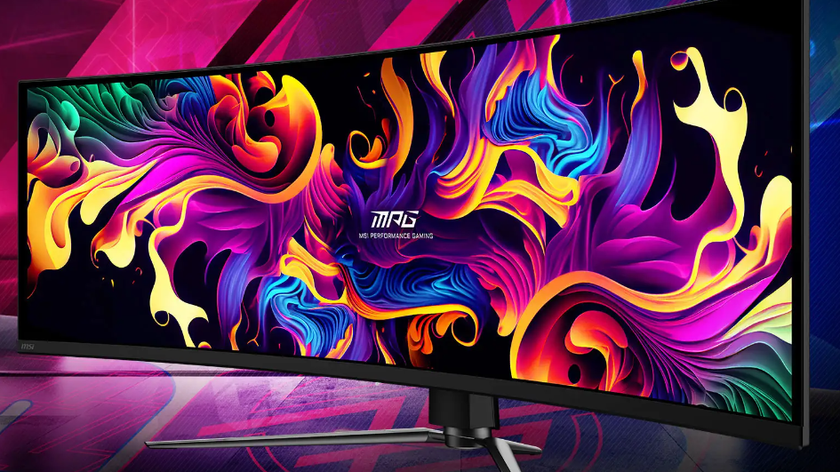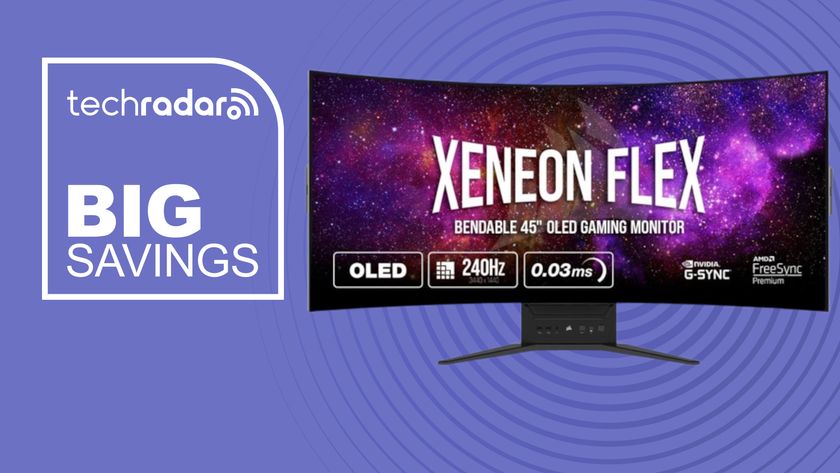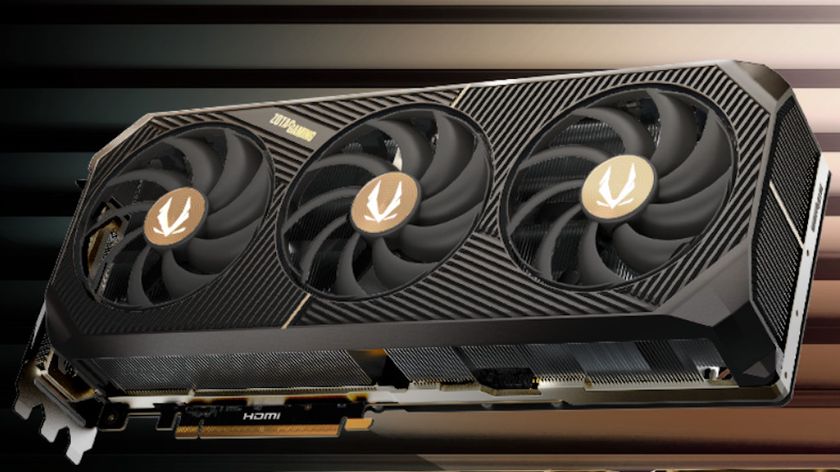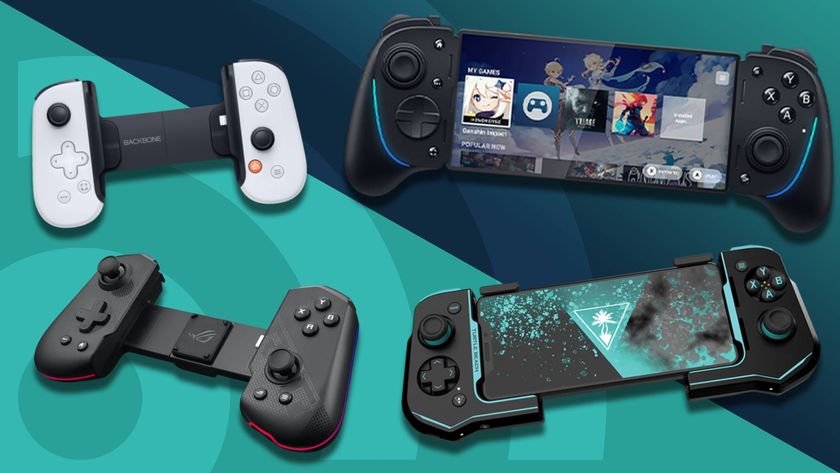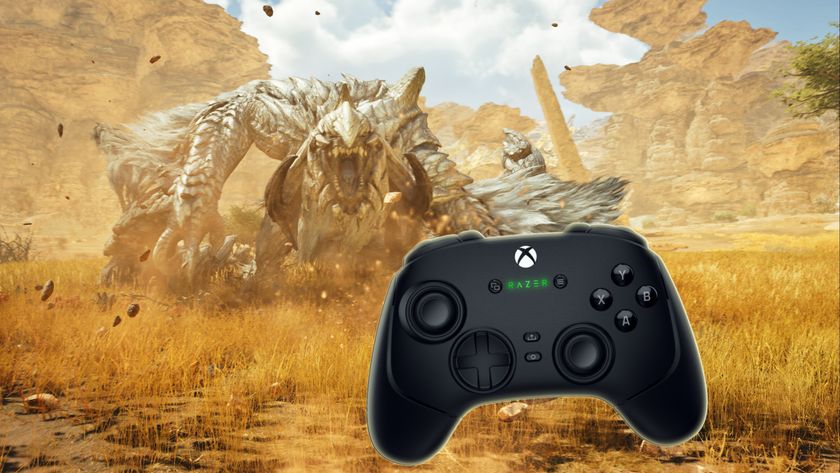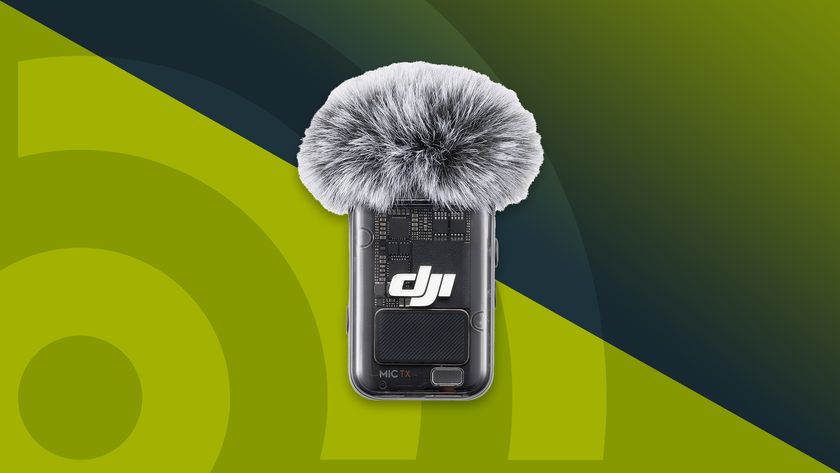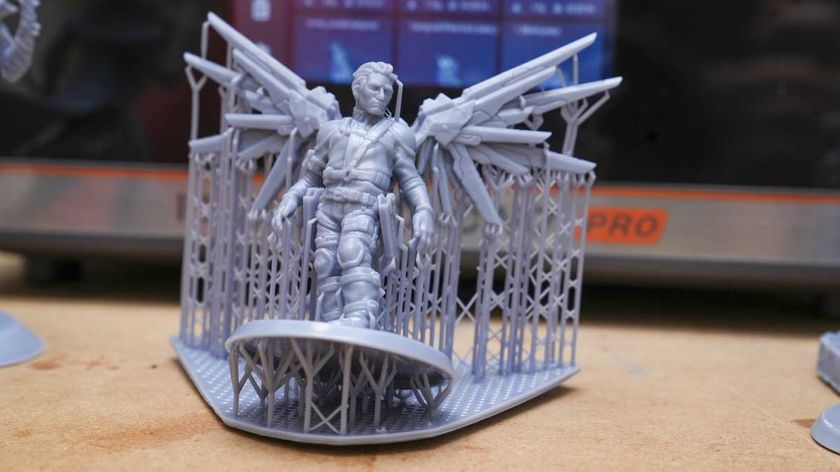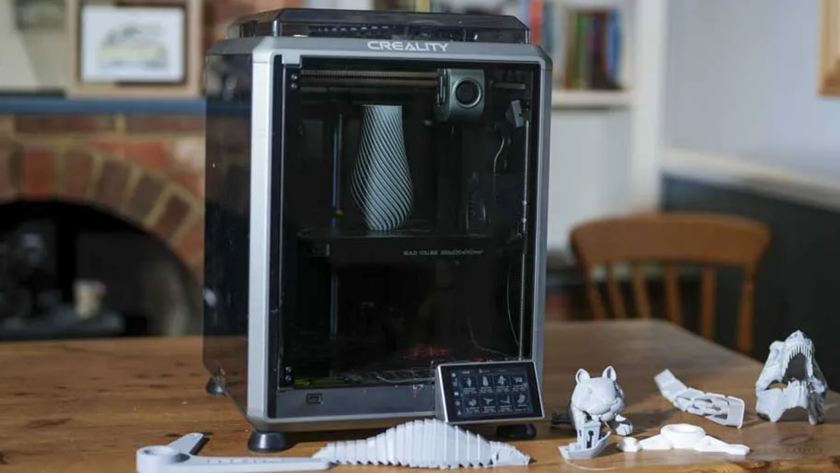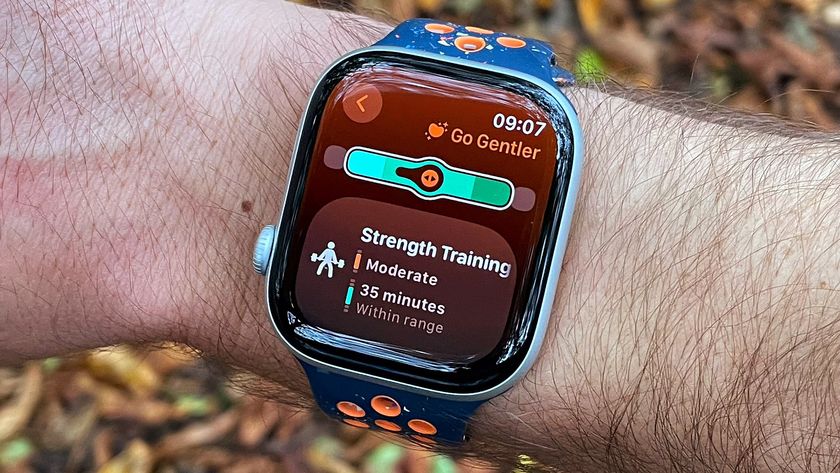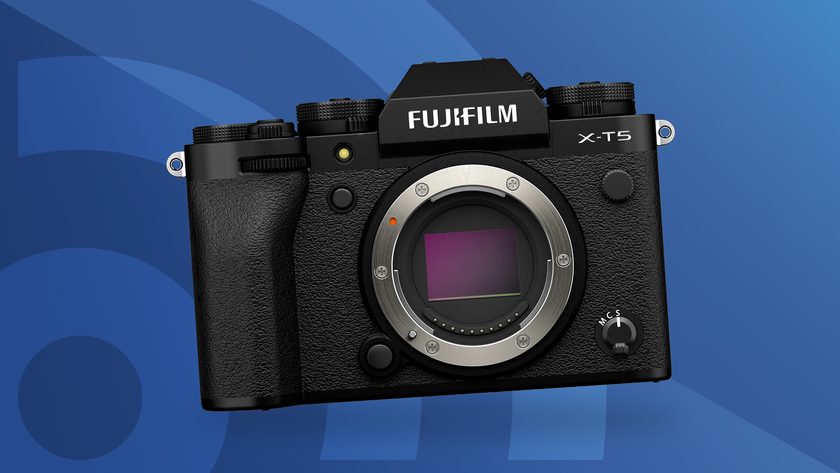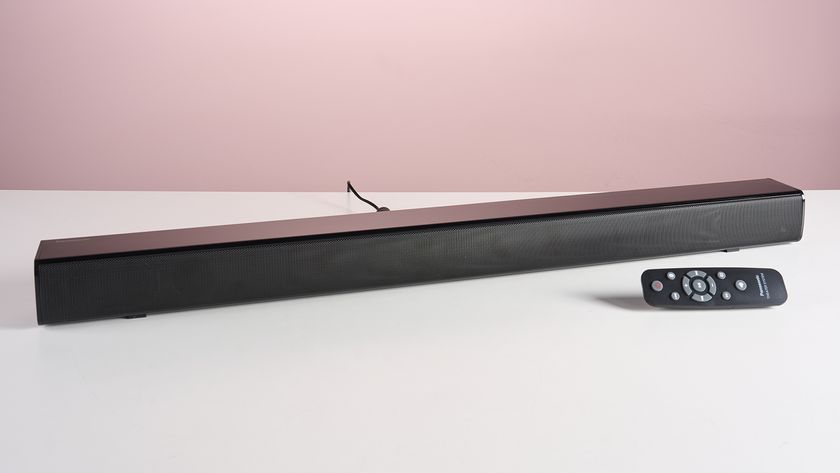Best portable monitor of 2025: My top picks for streaming movies, presentations, and gaming on the go
We reviewed the best portable monitors for business, gaming, and extending your laptop screen
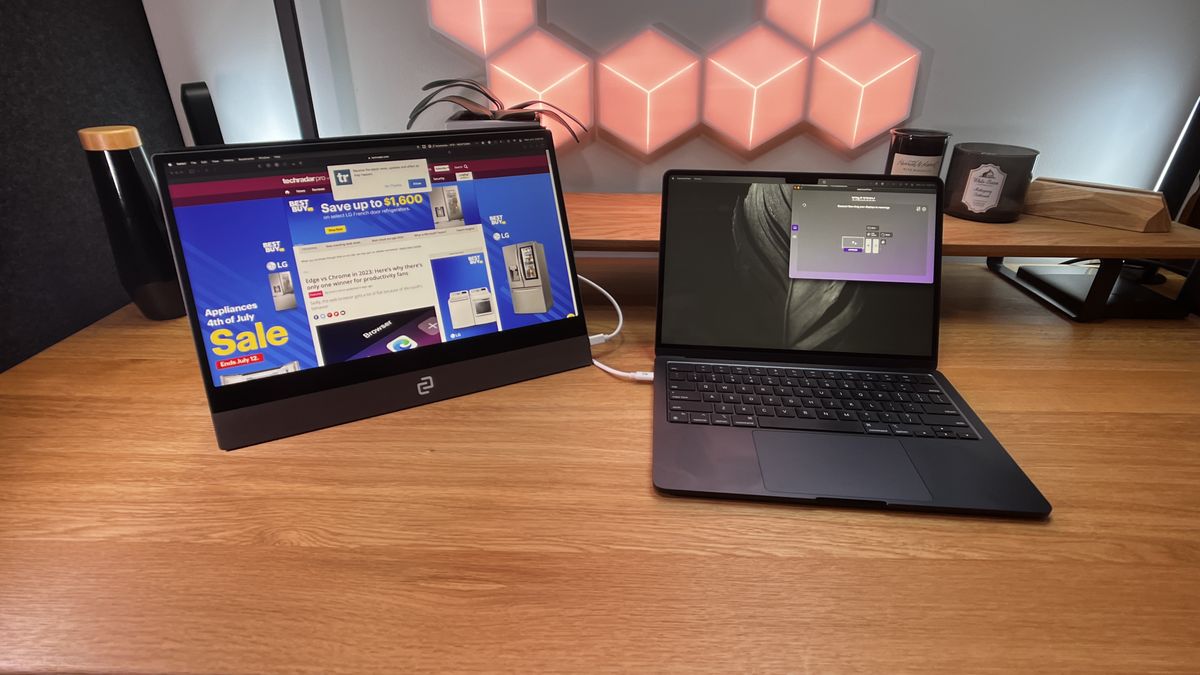
The best portable monitor needs to offer a good screen sizes with a suitable resolution, high color accuracy and gamut, good refresh rates if you're gaming, and enough connectivity for extra devices and accessories.
The Arzopa Z1RC is the best portable monitor for most people - and scored high in our review. It's a 16in 2.5K display that, we found, delivered vivid colors and outstanding picture quality. But it all depends on the screen size you need, and I've included a range of options right here.
We've tested every model featured here to find the top picks for streaming movies, making presentations, and gaming at home, in the office, and on the go.
For more screen options, we've also tested the best monitors and best business monitors.
Recent updates
Update: In my latest update, I've added a dual-screen option suitable for creators, photographers, and anyone who needs two portable screens (even better, it's currently discounted). I also added a new model into our Also Tested section.
The quick list
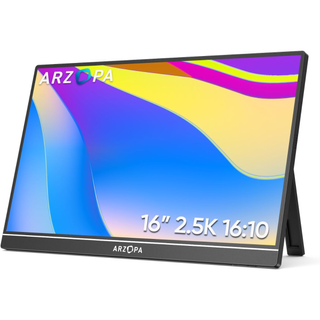
Best portable monitor overall
High-resolution and a big, portable screen make this our top pick, with a reasonable price for the specs.
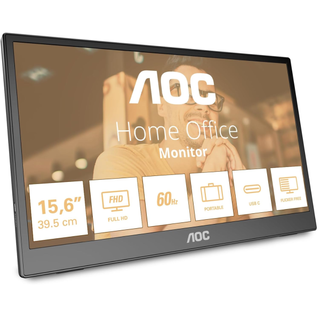
Best cheap portable monitor
A top choice for the home and home office, this AOC portable screen won't break the bank.
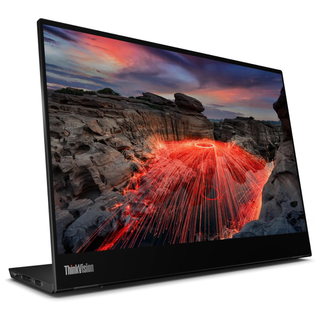
Best portable monitor for business
A great choice for professionals on the go, the 14in portable display is light and easy to carry, and boasts 1440p resolution.
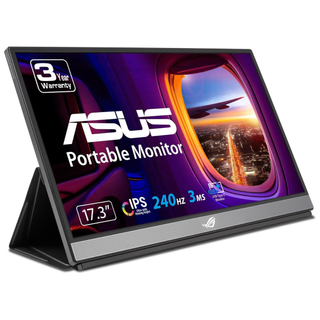
Best portable monitor for gaming
If you’re more of a business or productivity power user needing to extend your MacBook’s display, then this is the ideal choice.
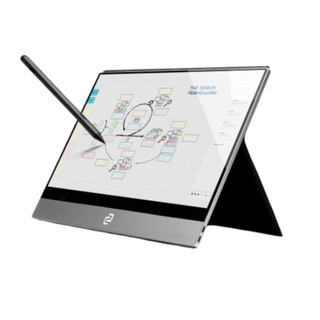
Best portable monitor for Mac
As beautifully designed as an Apple device, this space-grey portable monitor worked seamlessly on our Mac, and looks great too.
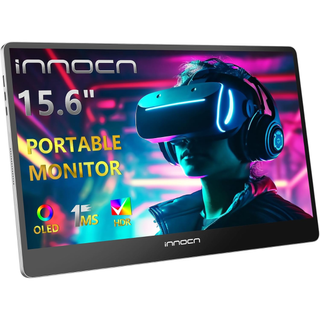
Best OLED portable monitor
If you want bright, vivid colors on the small screen, the Innocn 15A1F is a great choice in a portable package.
Load next products...
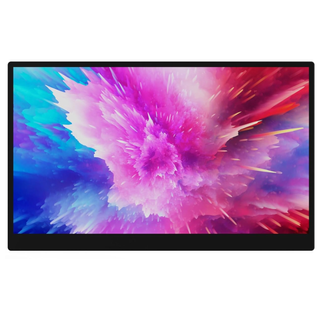
Best large portable monitor
For a big screen experience, we recommend this device, with a 17.3in screen and 4K resolution for clarity.
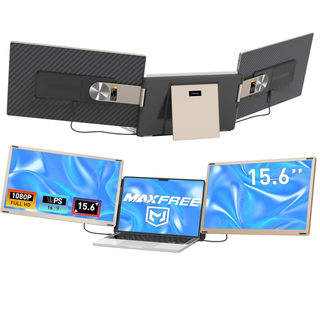
Best laptop screen extender
Two 15.6in portable displays rest either side of most laptops, giving you plenty of screen real estate for any project.
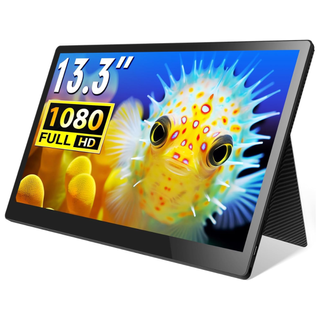
Best small portable monitor
Elecrow offers a range of small portable displays, but we especially like this 13.3in model that's highly compact.
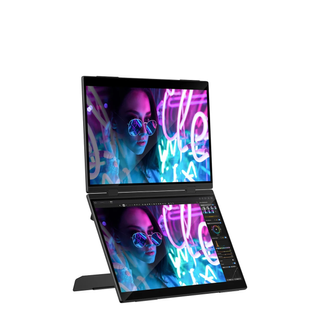
Best dual-screen portable monitor
Equipped with two 16in 2.5K panels, touch interface, and a pen, this dual-screen monitor is a good choice for creators and anyone who needs to expand their display.
The best portable monitor overall





Specifications
Reasons to buy
Reasons to avoid
✅ You want a cheap portable monitor: For the size and specs, this is an excellently priced device that won’t break the bank.
✅ You want a big screen, high-resolution portable display: There’s plenty of screen real estate here if you’re mirroring or extending your screen here - in 2.5K res, which is more than enough for a screen this size.
❌ You need a small screen for extra portability: At 16in, this device isn’t the lightest and smallest display you can get.
❌ You travel regularly: Without a protective case, we don’t feel the Z1RC could survive a particularly bumpy drive or fierce commute.
The Arzopa Z1RC is the best portable monitor for most people thanks to its clear 16-inch, 2.5K display, and USB-C and mini HDMI connectivity - all at a reasonable price.
Generally well-reviewed, Arzopa’s range tends to be cheap, portable, and powerful enough. A display like the Z1RC might not have every bell and whistle, but like most of the company’s line-up, it’s affordable and suitable for most uses, like working, streaming, presenting, and light gaming.
The IPS panel on the Z1RC features 2560 x 1600 resolution, 60Hz refresh rate, two USB-C ports and a mini HDMI port. Dimensions run to 356 x 240 x 9mm, weighing 763g. Color coverage is fair, and we recorded 100% sRGB, 89% AdobeRGB, 95% P3, and 69% of Rec 2020. We did find the viewing angle to be somewhat narrow at 85 degrees. Nor is it the brightest portable screen we’ve tested. Despite claims of 500nits peak brightness, it’s arguably closer to 400, with our own tests showing the backlight hit around 337nits with a contrast of 1060:1. We also felt a protective case is a necessity if you plan to use this portable monitor for travel.
Overall, there may be better portable monitors out there, but not at this price. Top lternatives we like include the gaming-focused Arzopa Z1FC and the 15.6in Arzopa S1 Table.
Read our full Arzopa Z1RC review
Cheap portable monitor








Specifications
Reasons to buy
Reasons to avoid
✅ You want a standard FHD display that won’t break the bank: The AOC 16T3EA is a solid all-rounder that delivers what most need from a portable monitor at a reasonable price.
✅ You want a lightweight, slimline screen for on the go work: In our tests, we found the AOC 16T3EA felt particularly good for business use.
❌ You need high-resolution and high color coverage: It’s only 1080p, has a low 250cd/m² brightness, and scrapes by on 56% sRGB, 41% Adobe RGB, and 41% DCI-P3 - so, this is not a display for content creators.
❌ You need a portable monitor for gaming: With only 60Hz refresh rate, this will be fine for single-player games on the go, but won’t meet demands for high-speed multiplayer gaming.
The AOC 16T3EA may have some minor limitations, notably the color accuracy, it’s well-priced for a portable full HD display.
With its 15.6in 1080p IPS display and a slim, lightweight design, we found it a very effective multi-tasking companion for on-the-go professionals. We were impressed by the 14mm profile and 870g weight, even with two built-in kick-stands tucked away around the back for portrait and landscape orientation. Helping to maintain that compact form is the inclusion of a single USB-C connection. Just plug it into any compatible Windows or Mac laptop and you’re away.
And this may be the first deal-breaker. There are no other ports along the display. Not even an audio jack. We also noted the disappointing brightness (just 250cd/m²), while color coverage is effectively non-existent (56% sRGB, 41% Adobe RGB, and 41% DCI-P3). And the lack of anything beyond OSD controls means we can’t recommend this for content creators and photographers. But for anyone looking for a smartly designed portable second-screen, there’s a lot to like.
Read our full AOC 16T3EA review
The best portable monitor for business






Specifications
Reasons to buy
Reasons to avoid
✅ You want excellent resolution: With a resolution of 1440p (or 2.2K), this portable screen offers a bit more than the standard 1080p you’ll find on most displays of this size.
✅ You want real portability: We’ve long been championing 14in as the perfect size for a business laptop, and the M14t Gen 2 fits nicely in that niche, too - big enough to see, small enough to travel.
❌ You need true color coverage: 100% sRGB isn’t bad for a portable display, but it won’t suit professional photographers and designers.
❌ You need a budget portable display: It may be cheaper than the Gen 1 was, but the Lenovo ThinkVision M14t Gen 2 is still about $400 / £400 new.
Part of Lenovo’s Think series, the M14t Gen 2 is a 14in touchscreen portable business monitor that’s overall optimal for working, watching, and low-level photo and video editing.
We’ve used plenty of ThinkPads in our time, and while the laptops’ keyboard and build quality are outstanding, the screens never stood out against the likes of Apple MacBook Pro. So, how does the ThinkVision M14t Gen 2 measure up?
This iteration boasts 1440p resolution, 16:10 aspect ratio, 100% sRGB color gamut, and 1500:1 contrast ratio. At $400 / £400, it’s around a hundred bucks cheaper than the Gen 1 was on release (as an older model, it’s decidedly cheaper now). So, in every way, it addresses the issues we had with the otherwise perfectly acceptable predecessor.
Image quality is excellent, and we had no issues editing videos and photos, or watching YouTube videos. Text was crisp, colors were accurate, vibrant, blacks were deep. Using the touchscreen and included stylus was simple and snappy - although it’s not going to be your go-to drawing tablet. Nor will it meet serious gaming needs due to high input latency. If that’s not an issue, the Lenovo ThinkVision M14t Gen 2 is one of the best portable computer monitors you can get.
Read our full Lenovo ThinkVision M14t Gen 2 review
The best portable monitor for gaming









Specifications
Reasons to buy
Reasons to avoid
✅ You want to play games: With a future-proof 240Hz refresh rate, this Asus portable screen is geared towards gamers.
✅ You want a large portable monitor with built-in battery: The Asus ROG Strix XG17AHPE boasts a 7,800 mAh battery built in, lasting up to four hours at 240Hz on a single charge.
❌ You want to watch or work: If you’ll mostly be watching YouTube and Netflix, or using office apps, this monitor is probably overkill.
❌ You need a cheap portable monitor: As you’d expect with specs like this, the portable monitor isn’t as cheap as the sub-$100 displays you’ll find on Amazon.
A 17.3in full HD display with a 240Hz refresh rate gives the Asus ROG Strix XG17AHPE the edge. The best portable gaming monitor we’ve tried, this device is focused, offers no compromises, suitable for the most dedicated players.
Even with its broad screen, the device is just 0.4in thin, weighing around 1kg, with a USB-C and miniHDMI ports along the side. In our hands, the well-built ROG Strix XG17AHPE showed no signs of bend or flex. It comes packages with a case and compact tripod, which is a thoughtful touch.
In use, the large portable display is vivid, crisp. When we tried games like Overwatch, Valorant, and Call of Duty, colors were popping off the screen without oversaturation, remaining distinct even in darker areas of the game. And we loved the smoothness that came with a higher refresh rate, with no ghosting and blur. Audio is loud and clear, too.
Yes, it’s a bit overkill if you’re presenting or Netflix-ing the night away (although it’s perfectly capable of doing it). Also, while current-gen consoles are only capable of 120Hz, the refresh rate here offers in-built future-proofing, and the Switch and PlayStation still felt smooth during our gameplay tests.
Read our full Asus ROG Strix XG17AHPE review
The best portable monitor for Mac & MacBook Pro






Specifications
Reasons to buy
Reasons to avoid
✅ You want an attractive portable display: We love the slick, professional design of the espressoDisplay, which neatly fits Apple’s eye-catching aesthetic.
✅ You want a portable laptop monitor to boost productivity: One of the reasons we love the espressoDisplay is the boost to productivity we found from this slim, minimalist screen.
❌ You need a simple travel monitor for a laptop: This portable display is, like an Apple device, a bit of a statement piece as much as it is a productivity tool.
❌ You need a cheap portable laptop monitor: The premium build and design of this display is reflected in the price.
The espressoDisplay is our pick for best portable for Mac,MacBook Pro, and Mac mini devices. True, most displays here are compatible with Apple devices, but the espressoDisplay’s sleek design fits well with the Mac aesthetic - and it showed outstanding performance when we hooked it up to our MacBook Pro 16in. With two USB-C inputs, though, you’ll find it works well with most Windows laptops, too.
Attached to the magnetic stand, you can smoothly switch from landscape to portrait mode quickly - an essential feature for photographers and designers. There’s also a Creator screen protector, adding a matte finish to the glass screen, which we found made it easier to view in direct sunlight, and write on using the espresso stylus.
Using the screen for everything from work communications to review writing and photo editing, the portable display never missed a beat. It felt a natural fit for a more productive and efficient working environment. We’re not saying we got obsessed with the espressoDisplay, but we did find multiple reasons during the review period to work from home, just to have an excuse to use it. We also like the option of choosing a 13- or 15-in version depending on how portable you need it to be.
Read our full espressoDisplay review
The best OLED portable monitor








Specifications
Reasons to buy
Reasons to avoid
✅ You want OLED brightness: The standout feature of this portable computer monitor is the OLED screen that really makes colors pop.
✅ You want a portable screen for on-the-go color work: While not ideal for everyone, a decent color space coverage makes this a fair choice for those working with colors.
❌ You don’t need OLED: Not everyone using a portable monitor will need this sort of screen, which adds a fair amount to the price-tag and may be overkill for many uses.
❌ You need exact pantones: Color coverage is fair, but it's not precise, and the lack of high resolutions may make this unsuited for professional designers.
The Innocn 15A1F is one of the best portable monitors around - light, compact, a well-sized 15.6in screen at 1080p, it covers most bases. It’s not the only portable OLED display out there, but it’s a great option if you’re looking for a crisp, bright screen at a relatively affordable price.
Along the device you’ll find two USB-C ports (one for 45W power) and a HDMI 1.4 port. This means you can easily connect it straight to a laptop or games console. However, the 60Hz refresh rate will have limited appeal to serious gamers. Using it on a Windows computer, the desktop appeared remarkably punchy, boasting inky blacks and highly saturated colours. Our only real complaint is the reflective nature of the glossy glass screen.
400nits is the stated brightness for this panel. In our tests, it hit 406.2nits at 100% brightness setting. Impressive, but not bright enough for true HDR output. Base color coverage runs to 100% sRBG, 98.3% Adobe RGB, and 100% DCI-P3 - so, if you don’t mind the limited screen size, there’s potential here if you’re a designer or working with color.
Read our full Innocn 15A1F review
The best large portable monitor








Specifications
Reasons to buy
Reasons to avoid
✅ You want a large portable display: Measuring 17.3in corner to corner, this device is perfect for those who want a broad touchscreen canvas.
✅ You want 4K resolution: There aren’t loads of good 4K panels for portable screens, and this is one of the best - it’s also beautifully designed, so it looks great at all times.
❌ You don’t need a large display: The 17in size here makes this espresso display a little cumbersome to carry, so if you’re looking for a compact second screen for travel, there are lighter, smaller options.
❌ You’re on a budget: The excellent performance and build quality for this device does come at a cost.
Our favorite large portable monitor is the espresso 17 Pro 4K - no prizes for guessing the size and resolution of this display.
Beyond the high resolution, there’s a lot to like about this device, which features two USB-C ports, and an LCD panel that keeps the whole unit lightweight at just 1.1kg, while measuring 397 x 245 x 9mm. Brightness is quoted at 450nits peak, although we got around 350nits, which isn’t quite enough for HDR content. Color coverage is mixed. It reaches 85% AdobeRGB, but 97% of DCI-P3 and 100% of sRGB. Overall, though, we found this one of the best portable monitor units for most content creation tasks - so long as you’re not working with exact Pantones.
It’s fair to say a 17in 4K portable display is somewhat of a niche product, and we experienced a fair amount of battery drain during our review. However, it will more than meet the needs of those who demand higher specs. And we especially like the range of accessories available for the espresso 17 Pro, including a stylus and a classic-style monitor stand, which adds more flexibility to the set-up, but also adds a further 1kg. See our Intehill 17.3in 4K review for a large, similarly specced alternative.
Read our full espresso 17 Pro 4K review
The best laptop screen extender








Specifications
Reasons to buy
Reasons to avoid
✅ You want a triple-screen set-up: With two portable screens sitting either side of your laptop screen, the Maxfree S6 is a great productivity tool.
✅ You use it at one or two locations: We found this a great addition to our home office workspace, but as a dual-screen device, it’s undeniably heavy and not great for travel.
❌ You need a budget screen extender: Laptop screen extenders are already more expensive than a standalone display, and the Maxfree S6 is at the upper end of the scale. For a budget alternative, look to a brand like Arzopa and AOC.
❌ Your laptop is not between 13in and 17in: The S6 fits 13-17in laptops, so if you're running a netbook or an especially large display, it won’t be suitable.
The Maxfree S6 is a dual-portable monitor with two 15.6in screens that unfold, sitting either side of your Windows or Mac laptop. Best for business use and multi-tasking, it’s really easy to set up, with a standard-issue 15.6in IPS panel featuring 1920 x 1080 resolution, 16:9 aspect ratio, and 60Hz refresh rate. A fairly low 1000:1 contrast ratio and 300cd/m² brightness, and a very low 72% NTSC colour gamut round out this portable screen.
What really sets this unit apart from other triple-monitor units is the flexibility over positioning the two screens. Each one is independent of the other, letting you place either in portrait or landscape orientation, using just one or both. Each monitor will also require its own power supply, so make sure your laptop has enough ports or you’re using a USB hub.
Ideal for use in the office or home office, given its size and weight (360.7 x 216.6 x 45mm / 2.3kg), it’s certainly portable - but it’s undeniably bulky, and we found using the supplied case a necessity over cramming it into a laptop bag. For a smaller, more portable option, check out our The Portable Monitor Flex 14-inch review. It's also not the cheapest laptop screen extender we’ve seen out there. For low-cost alternatives, we recommend looking at models from brands like Arzopa and AOC.
Read our full Maxfree S6 Triple Laptop Screen Extender review
The best small portable monitor





Specifications
Reasons to buy
Reasons to avoid
✅ You want a tiny travel-friendly display: At just 13.3in, the CrowVi is ideal for those who want a small, lightweight portable display for travel.
✅ You want a touchscreen device: Not all portable monitors we try have touchscreen, but it's a welcome addition to this small and simple unit.
❌ You need a bright, high-resolution screen: While we enjoyed our time with the CrowVi, it's not the brightest you can find.
❌ You need the thinnest portable monitor you can: It may boast a small screen, but this is certainly not the thinnest portable display we've tested.
The CrowVi portable monitor from Elecrow has all the bells and whistles of a modern screen while being simple and small. The glossy 13.3in FHD IPS panel is bright at 300 nits and offers an 800:1 contrast level. Being thin at less than 10mm and weighing around 350 grams, the monitor can easily be moved around. The IPS technology also provides a great viewing angle and faithful color reproduction. The supplied plastic cover doubles as a stand while protecting the screen.
We found the display worked right out of the box, providing superb image quality and a touch interface. The low power consumption and built-in speaker make it an essential accessory for crowded spaces like desktops. Its best feature is that it works with only one Type-C connection, providing power, display, and touch input.
Our biggest issue using the CrowVi is its glossy screen, which can distract from serious work. The bezel isn’t the smallest found on a portable display, and while using only a slide button for the menu might be economical, this renders navigating the settings time-consuming. But, perhaps, that's the trade-off for a cheap portable monitor that's on the small side compared to most. See our Read our full CrowView Note review for a larger alternative from the same makers.
Read our full CrowVi review
The best dual-screen portable monitor







Specifications
Reasons to buy
Reasons to avoid
✅ You want two screens with higher than usual resolution: Both of these 16in screens have a resolution of 2.5K, ideal for
✅ You're a creator: There are two factors that make this model stand out to me - 100% sRGB color gamut and a touchscreen with pen support.
❌ You need a highly portable monitor: With its dual-screen set-up and 16in screens, it's a large and heavy device.
❌ You need a portable monitor for gaming: While we liked a lot of the specs here, the 60Hz refresh rate limits its use for gamers.
The Delta Pro Touch from monitor-makers Uperfect is a pretty impressive device, all told. Here, you get two 16in 2.5K monitors, each covering 100% of the sRGB color gamut, and both supporting touch interface. There's even a stylus included in the box, which makes it one of the best portable monitors for creators, photographers, and anyone editing images.
After unboxing our review unit, we gave it the once over. Design-wise, it's fairly compact, but it's not one for everyday carry - better to set it up in one location, rather than carting around multiple locations in a day (although that's absolutely a possibility). The included kickstand also felt stable and was versatile in use.
Testing this portable monitor for over two weeks, we connected it to a range of devices, including a MacBook Pro, iPad Pro, Dell Precision and ThinkPad laptops, and even set it up to display Apple TV on one screen and a Mac on the other. Throughout this time, we had no issues with performance at all. Thanks to the built-in screen rotation tool, it also served as a good presentation unit, letting others see what you see when folded over.
Ports selection is straightforward enough but hardly generous, with just a USB-C and mini HDMI port, but there's already two screens here, so we wouldn't
It's not as widely available as I'd like - you can get it shipped worldwide from the Uperfect website, of course, but beyond AliExpress, I can't see many options out there for the UK, Europe, and Australia. Still, at the time of writing it's been heavily discounted on both sites, which may swing it for you.
Read our full Uperfect Delta Pro Touch review
Best portable monitor: Also tested
Not every portable monitor we test can be considered the best, but each of these deserve an honorable mention.
Plugable 15.6in USB-C Portable Monitor: We really liked this slick and slim portable monitor for its lightweight design and high-resolution screen. However, it's difficult to find outside the US.
Read our full Plugable 15.6in USB-C Portable Monitor review
Hongo 2K 16in portable monitor: This 16in 2K portable screen offers serious value for money . Well-designed, easy to use, and with a refresh rate of 120Hz, we experienced smooth gameplay during tests.
Read our full Hongo 2K 16in review
The Portable Monitor Flex 14in: With two 14in portable monitors flanking your laptop, this device offers a smart dual-screen laptop extender set-up that feels well-built.
Read our full The Portable Monitor Flex 14-inch review
InnoCN PU15-PRE 4K OLED portable monitor: There’s not a lot the InnoCN PU15-PRE can’t do. Boasting 4K resolution, OLED panel, and touchscreen capabilities, it’s an attractive portable display suitable for many uses - although slightly over-specced for the size.
Read our full InnoCN PU15-PRE review
AOC I1601P 15.6in portable monitor: A simple, affordable portable monitor that, during our review process, proved to be an excellent companion for home and hybrid working.
Read our full AOC I1601P review
Intehill 17.3in 4K portable monitor: With a high-resolution display and high-quality build, we enjoyed our time with this 17.3in 4K portable monitor, although it might be overkill for simple uses.
Read our full Intehill 17.3in 4K review
Best portable monitor: FAQs
How do I connect a portable monitor to my device?
In general, portable monitors connect to devices via USB-C - a single cable carrying output and power, making it better-suited for portability. Plug one end into your device, the other end into the display, and head into your operating system's display settings for further configurations like mirroring.
Some portable monitors also connect to devices via USB-A, mini-HDMI, micro-HDMI, and VGA. Check your manual for full details.
Are portable monitors compatible with all devices?
You'll find the best portable monitors are compatible with laptops, tablets and gaming consoles like the Nintendo Switch. Depending on the portable monitor model, it may be possible to hook up to display to a desktop, but if you have the space for a second full-sized monitor, this will be usually be the better option for productivity gains.
Do portable monitors have built-in speakers?
Some of the best portable monitor models do feature built-in speakers. However, when it comes to internal speakers, we find audio quality varies greatly. Lower-priced portable monitors often having a shallow, tinny sound to them, lacking in bass. These speakers will be fine for presentations or in a pinch, but pale in comparison to those with dedicated audio systems or external speakers.
Do portable monitors require external power?
It depends on the model. Some portable monitors feature a built-in rechargeable battery, while others will draw power from the connected device.
Both have pros and cons. A portable monitor with a battery means you can use it for longer on the go, but it will be heavier. They're also more expensive. A display without a battery is lighter to carry, but will drain your device faster if you're not connected to the mains.
How to choose the best portable monitor for you
Choosing portable monitor hinges on your use case and to what device you are connecting.
Hardware & connections
When selecting the best monitors for a dual set-up, most people pair a portable monitor with a USB-C-equipped laptop. When it comes to plug-and-play simplicity, these are usually the top option, ensuring both compatibility and plenty of bandwidth for any resolution a portable monitor is likely to offer. That said, many mobile screens also support mini-HDMI, micro-HDMI, USB-A, and VGA. Just be aware that it may require software and drivers, which could present a problem depending on your device to drive the display.
Screen size & resolution
Screen size is an important deciding factor - big enough to complete tasks, small enough to carry with you. Most of the best portable monitors are 15.6-inch panels with a 1080p resolution of 1920 by 1080 pixels - although 4K portable monitors are becoming increasingly prevalent, with better color accuracy and color space coverage for creatives. However, 10 to 13in screens are available for true portability.
Refresh rate & response time
Most of the portable monitors we review have a refresh rate of 60Hz - standard for most monitors, except for the best gaming monitors. if gaming if your prime concern, and where every millisecond counts, check for a screen that refreshes the on-screen image faster. Look for 120Hz or 240Hz. Response times refer to how long it takes for a pixel on your monitor to change - the quicker, the better, especially for games.
Battery
Battery or no battery is another critical question. You can get portable screens both with and without built-in power. Cheap portable monitors tend to come without a battery, and are lighter. However, if you’re using a mobile screen away from the mains, they will drain your laptop’s battery pretty fast.
Brightness
Brightness is a significant factor, particularly for creative work and gaming. If you plan to use your portable display outside, you want as much of that as humanly possible. Most are limited, only topping out at a little over 200 nits. Aim for the brightest, highest luminance you can get - although brighter displays will use up even more battery when powered by your laptop. We always test the luminance of a device to see how well it holds up against the manufacturer's claims.
Budget
The best portable monitors range in price, from as little as $50 up to hundreds of dollars for premium displays - so it's easy to find one that does everything you need at the right price. Don't forget to check Black Friday portable monitor deals and Prime Day portable monitor deals when the seasonal shopping sales are on.
How we test the best portable monitors
We've tested a range of professional displays, including the best monitors for video editing, the best monitors for MacBook Pro, and the best monitors for photo editing. So, we know what to look out for when you need a second screen to take with you.
All devices featured in this round-up have been tested by us. We evaluate these displays across many aspects, starting with the design and dimensions, exploring weight and overall portability. Build quality is essential for the best portable monitors, and we're looking for robust devices that are designed for travel, the commute, and multi-location set-ups.
For screens, we look at size, avoiding - and noting - any signs of glossiness and reflectiveness when used in bright rooms or outdoors in sunlight. We also compare each display's resolution, and whether it's capable for the use. For example, we'd expect higher resolutions for photo editing than for streaming movies or presentations at work.
We also check brightness and viewing angles - and we always test the manufacturer's claims of brightness. In many cases, peak luminance in a real-world setting is lower than the stated specs, and we'll note this in our review. Where available or relevant, we'll evaluate color accuracy and color coverage to identify the screens with the best image quality.
For more, see our guide How we test, review and rate professional and business monitors on TechRadar Pro.
We also tested the best monitors for graphic design - and these are the ones we recommend
Get in touch
- Want to find out about commercial or marketing opportunities? Click here
- Out of date info, errors, complaints or broken links? Give us a nudge
- Got a suggestion for a product or service provider? Message us directly
Are you a pro? Subscribe to our newsletter
Sign up to the TechRadar Pro newsletter to get all the top news, opinion, features and guidance your business needs to succeed!

Steve is B2B Editor for Creative & Hardware at TechRadar Pro. He began in tech journalism reviewing photo editors and video editing software at Web User magazine, and covered technology news, features, and how-to guides. Today, he and his team of expert reviewers test out a range of creative software, hardware, and office furniture. Once upon a time, he wrote TV commercials and movie trailers. Relentless champion of the Oxford comma.
